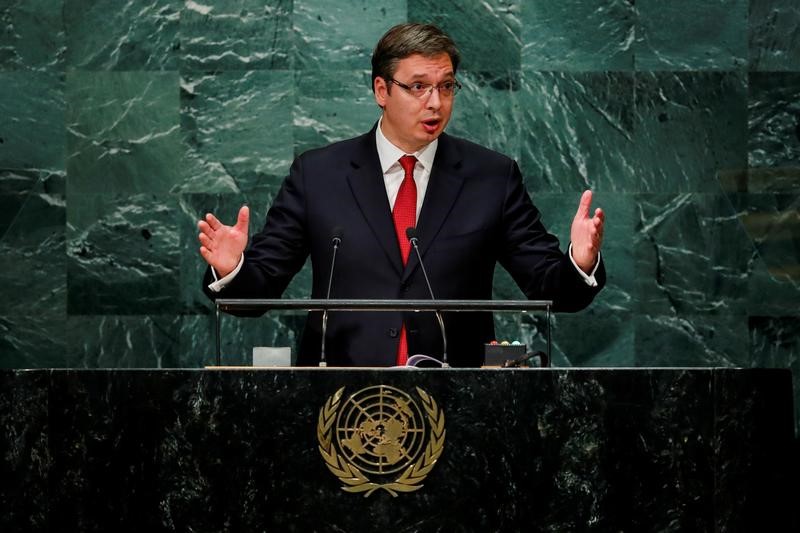By Andreas Rinke
BERLIN (Reuters) - Serbian Prime Minister Aleksandar Vucic on Tuesday warned of serious consequences if the European Union does not give Western Balkan countries a clear message about joining the bloc, citing growing nationalism and pro-Russian sympathies in the region.
He said Britain's vote to leave the EU, increasing conflicts among existing EU members and Greece's continued economic struggles had unsettled many in the Balkans, fanning concern about how realistic Serbian membership in the EU really was.
"You hear these rumours. 'The EU doesn't want us'. And then people try to find something different. That's something we see as a danger," Vucic told Reuters a day after he met Chancellor Angela Merkel.
"People are becoming more nationalistic, and on a monthly basis you see a slight decline of EU popularity and a slight rise of Russia popularity."
He said he urged Merkel to assert more leadership on the issue of EU membership for Serbia and its neighbours, with an eye to showing the tangible benefits of future EU membership, including jobs and Western values.
"We need huge support from the EU. All this messy stuff, it sends the wrong message to the people," Vucic said.
Still scarred by wars fought in the 1990s along political, ethnic and religious lines, the Balkan countries are at various stages of reforms aimed at paving the way for membership, with Serbia seen as a linchpin whose development could pull up others.
Russia, which is trying to exploit its historic links in the region to challenge EU and U.S. involvement, opposes the accession of Balkan states into the EU.
European leaders said at a summit last week more Balkan states could still join the European Union if they stuck to a path of economic and democratic reform.
Vucic's centre-right Serbian Progressive Party (SNS) last month nominated him to run for the largely ceremonial post of president in a move he said was aimed at shoring up support for Serbia's strategic goal of joining the EU while maintaining friendly ties with Russia.
Vucic underscored Serbia's strategic goal of joining the EU, but said his country was not seeking to join NATO and would stay neutral militarily, trying to maintain good ties with both Russia and the United States.
Merkel lauded Serbia's role in the Balkans during a news conference with Vucic on Monday and underscored Germany's continued commitment to working toward EU membership.
Germany has a 4 billion euro balance of trade with Serbia, with 370 German firms doing business there.

Vucic hailed his country's positive economic prospects, predicting growth of 3.5 percent this year, and highlighting his drive to introduce a single market in the west Balkans.